What to pack for your vacation to Thailand
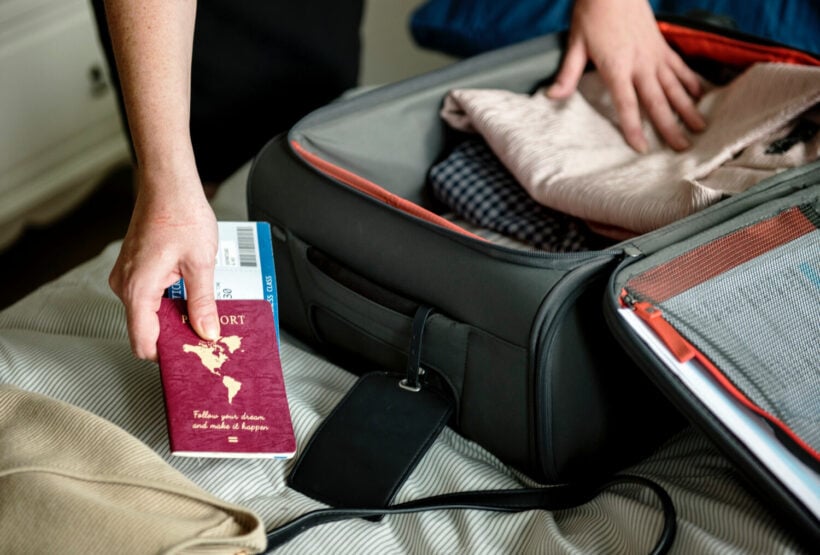
Travelling to Thailand is such an exciting experience, but trying to work out what you should pack and bring to the country can be a bit daunting. Overpacking is a common mistake almost every traveller makes, especially when travelling to a country as diverse as Thailand. It’s understandable to stuff your bags with things that rarely get used, like extra towels, a second jacket, extra batteries, and snorkel gears. After all, Thailand is far away from home, causing your mind to run through what-if scenarios. However, the country has everything you need to survive and have an unforgettable trip!
Below, we’ve compiled a list of essential items to pack for your trip to the Land of Smiles.
Before packing your bags
Some of the most important things you’ll need for your trip to Thailand won’t actually be in your bag. Therefore, be sure to sort out the following essentials before you actually pack your bags, as they may take a bit of time.
1. Visa
The very first thing you need to consider when planning a trip to Thailand is whether or not you will need a visa. For a visit under 30 days, you likely won’t need a visa since you’ll enter the country on a 30-day exemption stamp. Most nationalities can enter on the 30-day exemption stamp, but be sure to check with your local Thai embassy or consulate first.
If you’re planning to stay in Thailand for more than 60 days, then you’ll need to apply for a tourist visa. You can apply for a single entry or a multiple-entry tourist visa. A multiple-entry tourist visa is valid for 60 days, while a multiple-entry tourist visa is valid for six months, with permitted stays of 60 days at a time.

2. Vaccination
Taking sensible medical precautions before you travel to Thailand is vital. Therefore, it’s recommended to take some vaccinations for Thailand. Some vaccinations are mandatory depending on your medical history and which part of the world you’re travelling from.
If you’re travelling from the UK or the US, here are the vaccinations recommended by both the NHS and CDC:
– Hepatitis A
– Hepatitis B
– Typhoid
– Cholera
– Malaria
– Rabies
– Varicella
– Polio
– Diphtheria-tetanus-pertussis
– Measles-mumps-rubella
– Yellow fever
– Japanese encephalitis.
The list might be long and intimidating. Getting all of them can be pretty expensive, but don’t worry, most travellers don’t need to get all of these vaccinations. It depends on your medical history, which regions you’re visiting, the activities you’re planning to do, and how long you’re planning to stay in the country. Also, some vaccinations like measles-mumps-rubella and typhoid are scheduled early in childhood. Therefore, check your medical history to ensure you’re already protected.
In general, most travellers only need vaccinations for tetanus, Hepatitis A and B, yellow fever, and rabies. Vaccination against yellow fever is a requirement for all travellers arriving from any country with a risk of transmission.
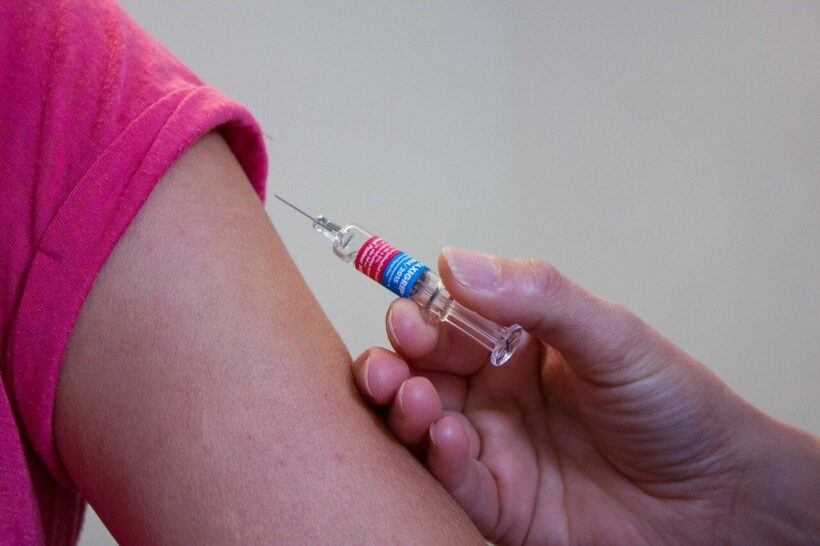
3. Travel insurance
No one wants anything bad to happen during their vacation. However, even the best-planned trips can be affected by the unexpected. You don’t want to get stuck in Thailand with a huge medical bill you can’t pay, and you don’t want any unforeseeable events to throw a wrench in your travel plans. The only way to ensure that you’re protected against any unwanted situation is to get travel insurance.
4. Flight ticket
Having a return or onward flight booked is a legal requirement for those who enter Thailand as tourists. You may or may not be asked for this information, but it’s better to come prepared. To be safe, print a copy of your flight information and keep it in your travel wallet.
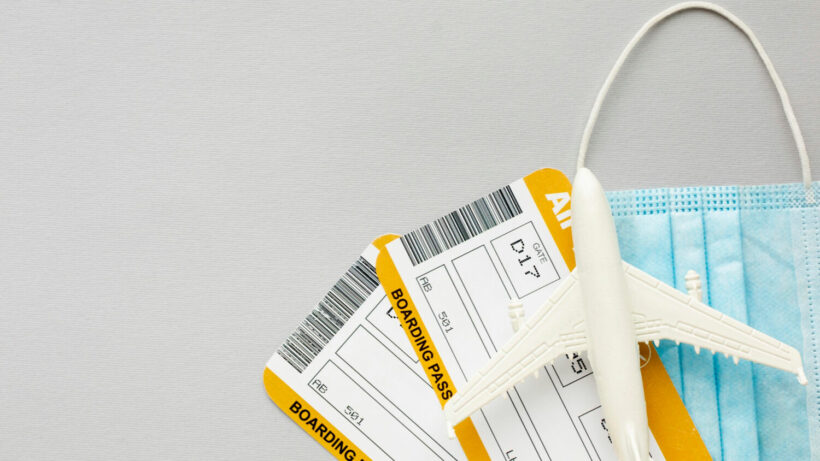
5. Hotel reservation information
You’ll likely have to fill out an arrival card on the plane or on arrival at the immigration. One of the things you need to fill out on the arrival card is the name and address of the hotel you’re going to stay in. Therefore, be sure to print out your hotel reservation information and keep it in your travel wallet. Of course, you can also store the information on your phone, but be sure that you can access it without reception. If you are looking for any further information, please visit our partner’s website ‘Agoda.‘
6. Passport
This one is very obvious, but a lot of people forget about their passports until it’s too late. Since your passport needs to be valid for at least six months, it’s best to check ahead of time in case you need to renew it. It’s also recommended that you make a couple of copies of your passport with you since you may need to provide them to your hotel, car or bike rental, etc.
It’s a requirement to have your passport with you at all times. However, it’s safer to keep your passport in your hotel’s safe. Therefore, instead of bringing your passport everywhere, it’s best to carry a coloured copy with you. It will be enough should you need to show it to a police officer. Make sure to photocopy the page of your passport with the entry stamp as well.
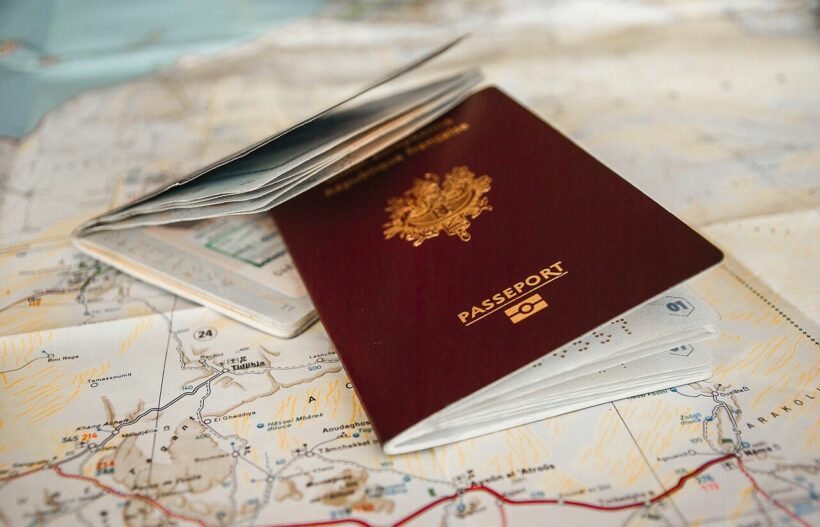
7. Document scans
Take cellphone photos or scan your passport, driving license, insurance info, credit cards, and any other important documents and save them to your email account. These may come in handy if you lose any of your documents since you have companies of them available on your phone. You might also want to keep the numbers of your banks in case you need to cancel your cards.
Backpack or suitcase?
Backpacks are favoured by the majority of people. They would argue that backpacking in Thailand is the best way to see the country. There aren’t many elevators outside of big cities, and climbing a stair with a suitcase can be a hassle. Travelling with a backpack also comes in handy if you’re planning to stay in many different areas in the country or if you want to go island hopping. It can be hard to lift suitcases on and off boats, taxis, trains, and airports.
However, if you don’t plan to be constantly on the move and you’re not going to visit remote areas, travelling with a suitcase can be a great option. Most of the time, you can go from taxi to hotel, to bus, to train, without having to lift or carry your suitcase.
Backpack or suitcase – it’s really up to you and what you’re planning to do in the country. Both are easy to travel with. Just be sure your backpack or suitcase is lightweight and durable.
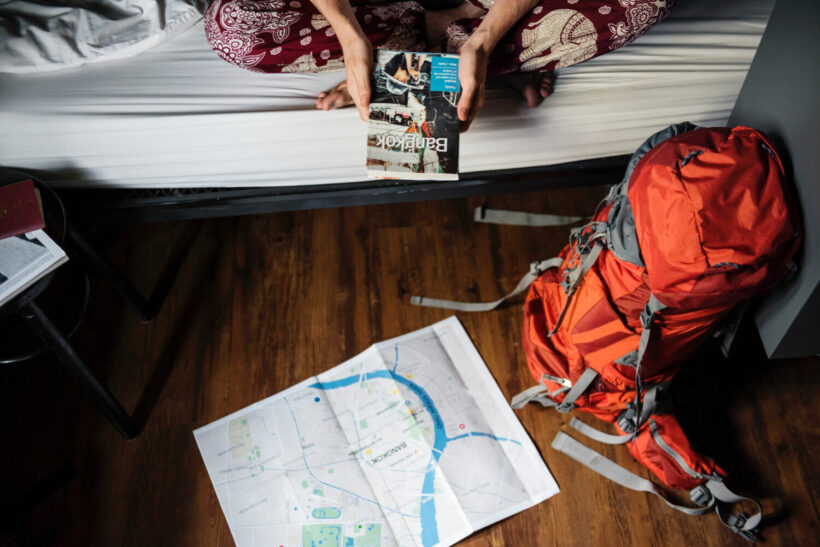
Cash, Credit, and Debit Cards
It’s a good idea to diversify your travel cash when travelling to Thailand. You should have at least two ways to access funds, whether it’s cash, credit card, or debit cards.
1. Carry-on cash
You have to provide proof of adequate finances for the duration of your stay. For instance, cash equivalent to 10,000 Baht per person. While it’s rare to be asked to prove if you have access to this money, it’s best to carry it as a minimum amount of cash. You don’t have to carry Baht, but make sure that the exchange rate of the currency you carry is equivalent to the required amount. If you want to exchange your currency, it’s better to do it inside Thailand.
Cash will be needed for markets and food stalls, especially if you’re travelling to smaller towns or remote islands.
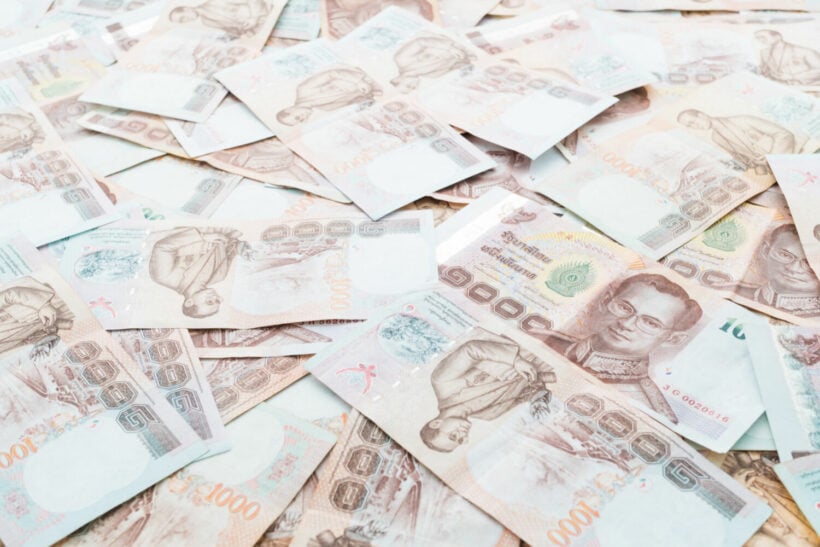
2. Credit or debit card with zero transaction fees
Most chain hotels, restaurants, and shops in malls take cards. You can also use your cash to withdraw money and get local currency. Therefore, you can use your credit and debit card in Thailand. The most commonly accepted cards are Visa and Mastercard.
Be sure to bring a credit or debit card that will work internationally and doesn’t charge for ATM withdrawals or foreign transactions. Keep in mind that although your card has zero transaction fees, ATMs in Thailand still charge per withdrawal.
Don’t forget to let your banks know the dates you’ll be in Thailand so they can make a note on your account.
Clothing
When packing for Thailand, you need to remember that the country is either warm or scorching hot. Avoid packing wool or polyester clothes. Instead, pack clothes with airy and breathable fabric like cotton, linen, and viscose. Some options in Thailand may include T-shirts, tank tops, shorts, loose pants, and summer dresses. In addition, you might want to pack a rain jacket, especially if you’re travelling during the wet season. Be sure that the rain jacket is light, cool, and waterproof. If you’re planning to use long-haul transportation like night buses, a light jacket will also come in handy.
Besides the weather, you also need to keep in mind that Thai people are fairly conservative and modest. Bangkok tends to be a bit more flexible with how you dress, but still, it’s best to dress appropriately. When visiting temples, be sure to cover your shoulders, avoid tight-fitting clothes, and wear long pants and skirts. Don’t wear clothing with potentially offensive themes.
You don’t have to pack your whole wardrobe. You can find cheap laundry services everywhere. Remember, the less you have to carry around, the easier and more comfortable your trip will be.
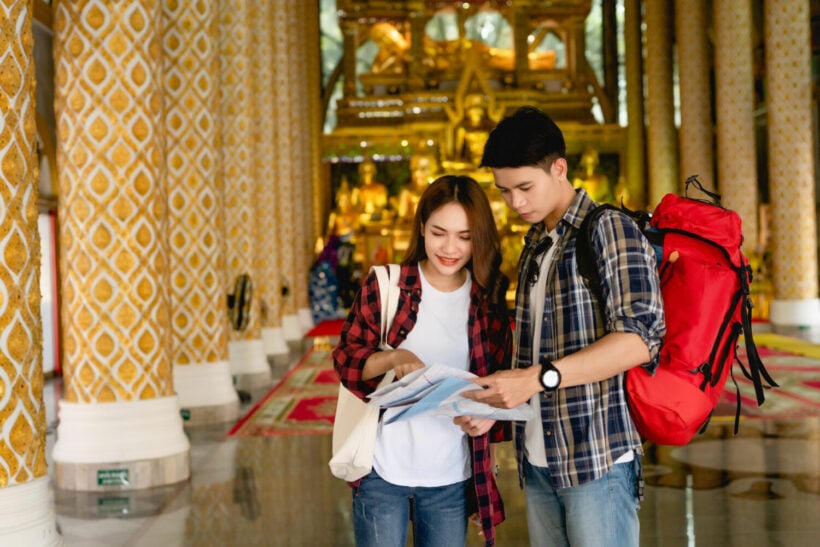
Shoes
The most useful footwear in Thailand is a pair of flip-flop sandals or slip on shoes. You might have to take your shoes off frequently in Thailand – when entering a temple, someone’s house, some shops, and massage parlours. Slip on shoes and flip-flops are easier to get on and off quickly. Besides, flip-flops are great for the beach.
Sneakers and breathable walking shoes are a great option as well. Although they might not be very practical to get on and off, they can be a comfortable option if you’re planning to walk a lot.
Mountain hiking boots and socks can be uncomfortable in Thailand. Even when you’re planning to go trekking, a soft and durable boot is recommended. Instead, pack lightweight hiking shoes or hiking sandals that you can happily walk around all day. It’s also a good idea to break the shoes in before you travel to ensure that they won’t cause blisters.
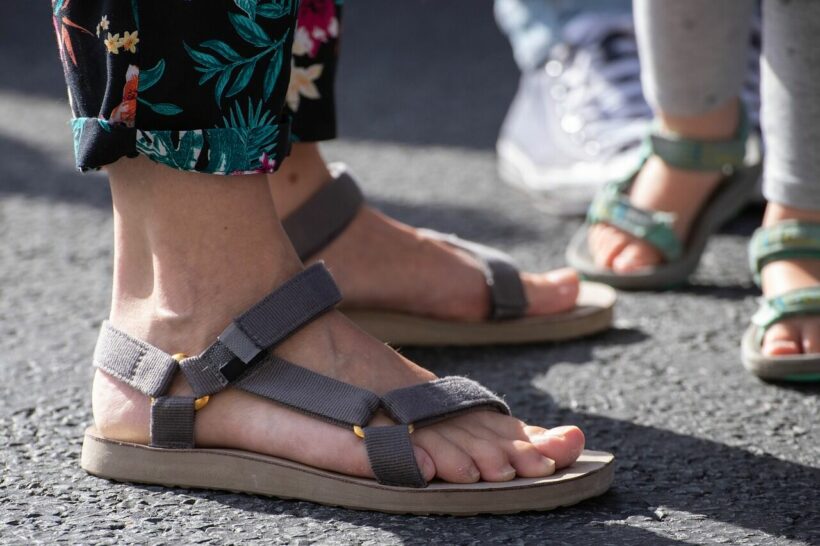
Toiletries
You don’t really have to pack most of your toiletries because they’re available in Thailand, especially in Bangkok. So save yourself space and weight in your luggage by bringing only the basics to use on the go. These may include toothbrushes and toothpaste, deodorant, lotion, lip balm, feminine hygiene products, and hairbrushes. If you can, pack travel-sized toiletries instead of full-sized ones.
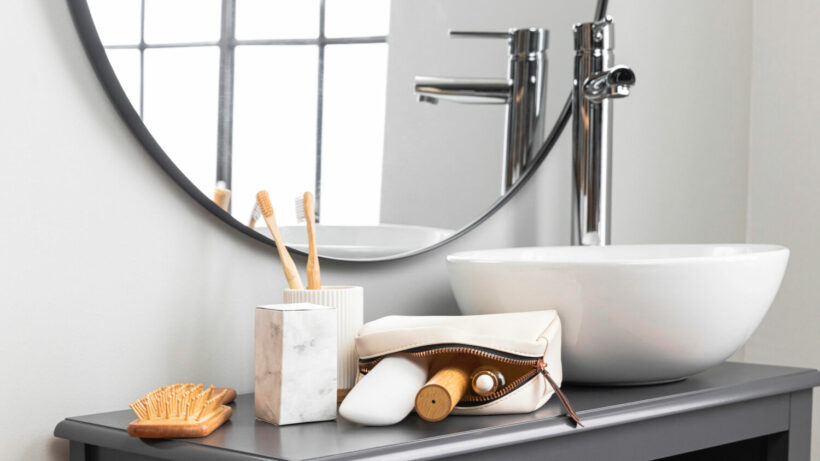
Essential Items to Carry
You might want to have the following essentials during your time in Thailand, whether you bring them from home or buy them locally.
1. Reef safe sunscreen
Remember that Thailand has a tropical climate, and it tends to get very hot, so you’ll definitely want to protect yourself. Even if you love the sun and you want to get as tan as possible, sunscreen is still a must. You can still burn on cloudy days, so use your sunscreen no matter what the weather is like.
For water activities, pack reef-safe sunscreen to help protect the oceans. Reef safe sunscreen can help protect your skin while ensuring that you’re not doing any harm to the reef. Besides, Thailand has recently banned coral-damaging sunscreens in marine parks.
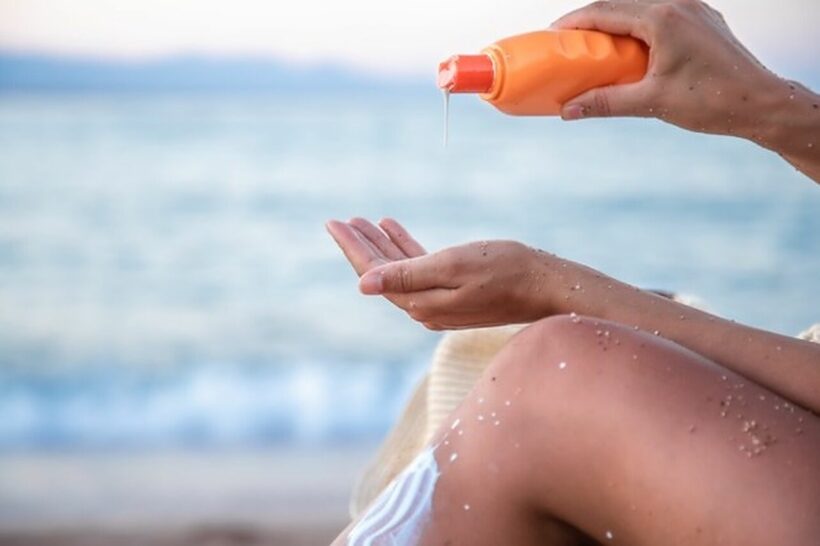
2. Mosquito repellent
The mosquitos are just as strong as the sun in Thailand. Dengue fever is a serious problem in the country. The best defence you have is to cover yourself in mosquito repellent, particularly at night. Without them, you’ll be itching your entire trip. Be sure to pack some mosquito repellent with you or buy one as soon as you arrive in Thailand. We also offer tropical disease insurance that you can look into.
3. Sunglasses
It’s wise to protect your eyes while travelling in Thailand as the sun can be very strong. You can find cheap sunglasses in Thailand, but it’s better to invest in a decent pair of sunglasses that will screen out harmful ultraviolet rays.

4. Hand sanitizer
Having an alcohol-based hand sanitiser is vital for your trip to Thailand. Soap isn’t always available in toilets, so keeping some hand sanitisers handy can be a lot of help.

5. LED Flashlight
Power outages are common in many places across Thailand, especially on remote islands that rely on power generators. Therefore, having a flashlight with you can be a lifesaver especially if you plan on travelling to remote areas.
Other Travel Essentials
1. Prescription medicines and first aid kits
You can buy well-known medication in any pharmacy in Thailand without a prescription. Unless you’re dealing with something serious, you likely won’t need to visit a local clinic first. However, if you depend on daily medications, consider bringing enough for the duration of your trip. When carrying large quantities of pills, be sure to keep a copy of the prescription with you to avoid being questioned at airport security.
2. Reusable water bottle
You’ll need to drink a lot of water due to the heat in Thailand. Since there’s already so much plastic waste in the country, consider bringing your own reusable water bottle that you can refill throughout the trip.
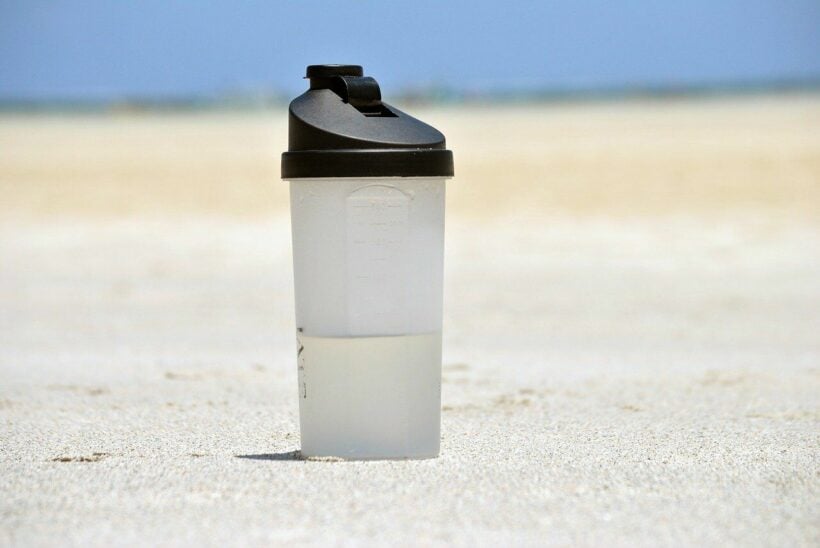
3. Padlock
Some bungalows and hostels, especially the ones with dormitory rooms, allow you to use your own padlock for lockers so you can lock your valuables away.
4. Power adapter
Most power outlets in Thailand are already universal, meaning they suit US and European devices. However, to make sure that you can connect everywhere, consider bringing a power adapter with you, especially if you’re planning to stay in a bungalow on an island or in a cheaper hotel. Remember that Thailand uses a 220-volt system, so check the voltage ratings on your chargers/devices.
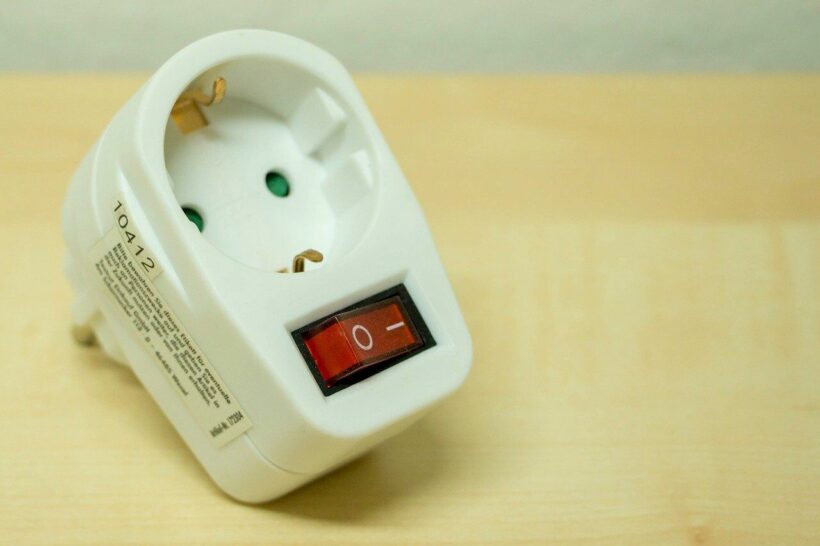
And that’s the end of our list of essential items to bring to Thailand. Of course, no one Thailand packing list works for everyone, but the key is to pack light. Having lots to carry from one place to another can be frustrating and uncomfortable, so only bring the items you’re actually going to use.
Travelling to Thailand is still challenging due to the Covid-19 pandemic, so be sure to keep this list for when travelling is finally safe again!
Latest Thailand News
Follow The Thaiger on Google News:


























